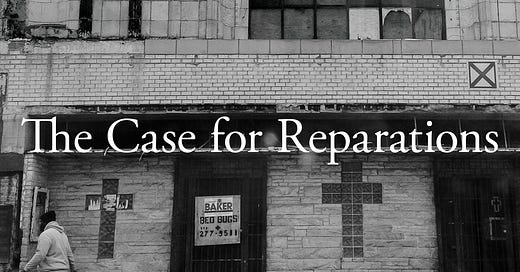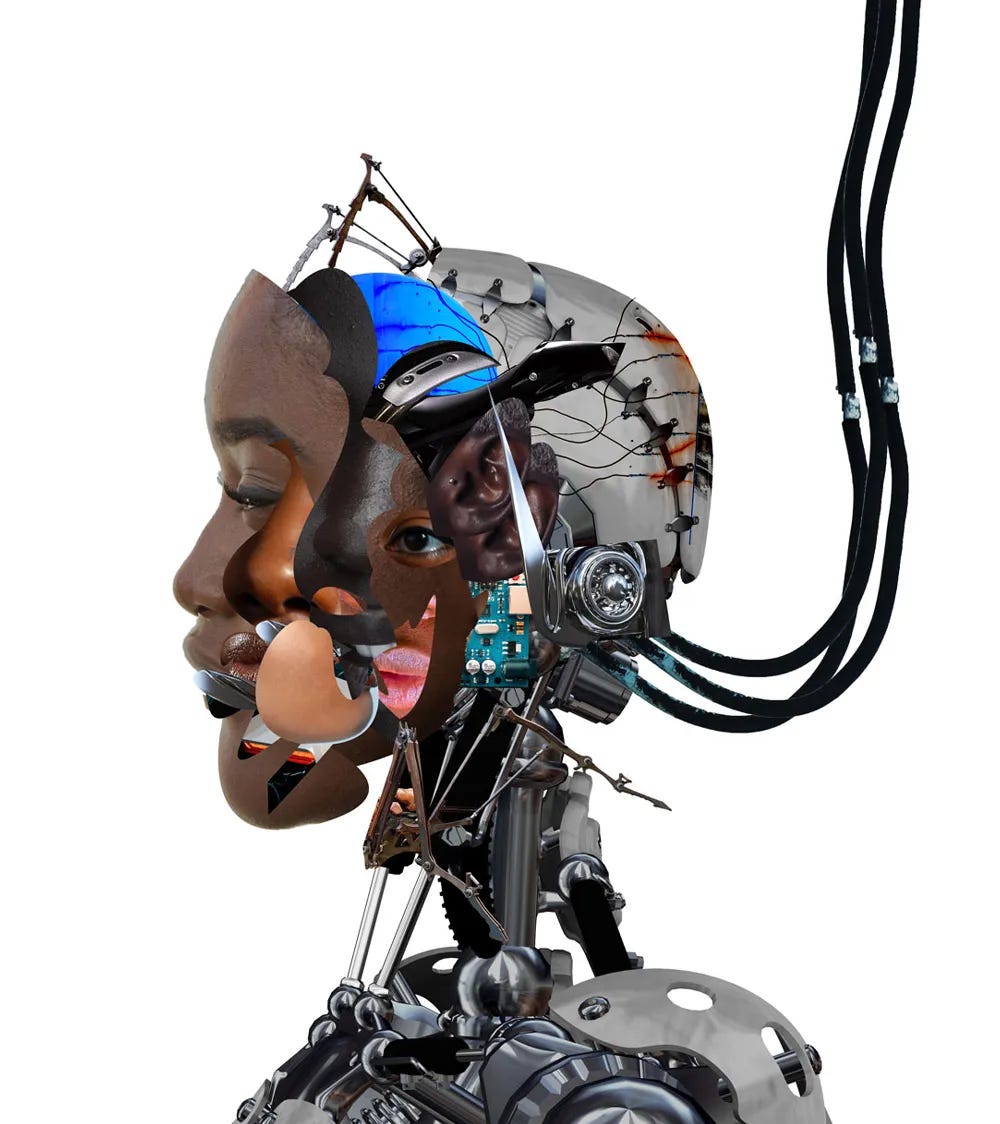4 Articles to Read for Black History Month
Because the Federal Government Doesn't Run Your House
Book lists abound during Black History Month. As a librarian, it’s my joy to share all of them, but you may be short on time or you may be someone who loves a journalists’ view. I, for one, think it’s past time that we move back towards slower journalism in magazines and newspapers. Let the thinkers think and actually put together real arguments and not just spit out whatever rumor is going around on the internet so they can be the first one to post. Here are four articles that I recommend for this Black History Month that will absolutely get you thinking.
The Case for Reparations by TaNehisi Coates
I read this years ago and I won’t say it radicalized me, but it definitely gave me a lot to think about with the necessary context to understand the call for reparations for the descendants of enslaved Africans in America. Coates doesn’t just talk about slavery, but also Jim Crow and redlining. It’s about the systemic oppression and theft of wealth perpetrated by the federal government and encouraged by state, federal and business forces.
The kind of trenchant racism to which black people have persistently been subjected can never be defeated by making its victims more respectable. The essence of American racism is disrespect.
The 1619 Project by Nikole Hannah Jones
We know about the book, and the documentary and even the children’s book too, but this is the original suite of articles that spurred so much ire that state legislatures across the country submitted and PASSED anti-CRT bills, believing that any mention of systemic oppression was dangerous and divisive and should be stamped out. As I type this I have to consider my book displays (not my book buying because I know how to work around that). This article gives a deep dive on the systems and not the people at play in regards to racism and oppression in this country. If it’s just a person you can shrug your shoulders and say you can’t change someone’s heart and mind and there’s not responsibility to do anything about it, but systems have to be altered. Systems must be changed.
“Our Declaration of Independence, signed on July 4, 1776, proclaims that ‘all
men are created equal’ and ‘endowed by their Creator with certain inalienable
rights.’ But the white men who drafted those words did not believe them to be
true for the hundreds of thousands of black people in their midst. ‘Life, Liberty
and the pursuit of Happiness’ did not apply to fully one-fifth of the country. Yet
despite being violently denied the freedom and justice promised to all, black
Americans believed fervently in the American creed. Through centuries of black
resistance and protest, we have helped the country to live up to its founding
ideals…Without the idealistic, strenuous and patriotic efforts of black
Americans, our democracy today would most likely look very different — it
might not be a democracy at all.”
Black or Bot? The Long, Sordid History of Co-opting Blackness Online by Morgan Jerkins
This article is evergreen my friends. I find a reason to share it out at least once a quarter because the bots pretending to be Black are on every social media platform. Why do they do it? How are they funded? Who is funding them? This article tries to answer all of these questions.
Bots, particularly those from Russia, have been known to pose as Black people on Twitter. Online, the existential question of who someone truly is becomes fertile ground for chaos agents to further ignite painful interracial tensions. This discord serves to perpetuate racism, which has always been founded on lies.
What My Black Mother’s Involuntary Sterilization in 1965 Reveals About America Today by Catherine Coleman Flowers
The Black Maternal Mortality in this country is sky high and even though I would never consider myself to be a hippie adjacent crunchy Mama, I did have two waterbirths. I was not letting anyone with a scalpel or a needle near me and my babies, because I knew that it wasn’t just a question between pain and no-pain but life abundantly and possible death. This article tells another side of the Black maternal issue, the need for the government to control Black women’s bodies.
Mary and Minnie were the youngest of six children in a Montgomery family. Their parents were illiterate, and their father had been injured in an accident and unable to work. Oh, yes, and of course they were African American. In other words, they were perfect victims in an unjust system. The girls were twelve and fourteen years old, and boys had begun visiting them. One day, city social workers picked the girls up, told their mother that they were going to a family planning clinic to receive birth control shots (which, by the way, had not yet been tested on humans), and instead were taken to a hospital.
I don’t put any of my articles behind pay walls, but if you want to Buy Me A Coffee, I appreciate it!
You might also like my Essential Black Literature post with the top 50 books you should have in your personal library.
Essential Black Literature List
As a librarian of going on 15 years I have always held libraries in the highest regard. They serve as time capsules, they excite and inform and they give us a look into the past so we can design our future. As they say, we don’t want to reinvent the wheel, nor do we want to reinvent the atomic bomb. Our destruction lies in our ignorance, so it is of utm…








